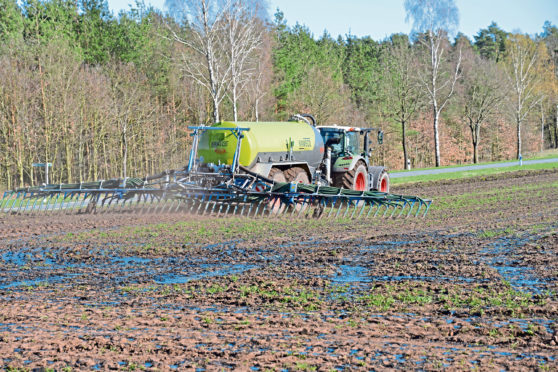Cereal growers are being urged to protect the purity of their land for future generations by thinking “very carefully” about the implications of spreading digestate.
As pressure mounts on the industry to spread different types of digestate on farmland from an increasing number of anaerobic digestion (AD) plants, assurance body Scottish Quality Crops (SQC) has officially launched its approved green digestate scheme after two years of consultation with growers and distillers, and is now appealing to the farmers to use the product sparingly.
SQC chief executive Alistair Ewan said prior to the consultation, concern had been growing in the distilling industry that Scottish farmers might use unapproved digestate and risk making their land unsuitable for growing malting barley in future.
“It has taken a while for members to understand that what we’re trying to do is protect their businesses by having green digestate fully approved all the way through the system and audited to an SQC standard which maltsters and millers are happy with,” he said.
“We’ve had fantastic support from the whisky industry because they know how important it is to have provenance. Circular agriculture is all very admirable, but we need to protect our soils and the whisky industry is begging us not to allow biowaste on the land because it could have a negative impact on marketing in years to come.
“The plants producing approved digestate will offer it to farms along with a passport, so auditors have no need to worry.”
The Scottish cereals industry was first informed about SQC’s digestate proposal in July 2019 but it is only now that scheme standards and application forms are being circulated. They can also be obtained from appointed certification body Lloyd’s.
SQC chairman Andrew Moir said he hears the words “assurance and provenance” at every meeting he attends with the industry’s key buyers, and is in no doubt the scheme will protect both Scottish agriculture and its reliant industries in future.
Making it clear he is not speaking as SQC chairman but an ordinary farmer, he added: “If the Scotch whisky industry want to ensure the land is in perfect condition to grow crops of barley and they value it so highly, they need to think very carefully about what they pay for the product. That would certainly help farmers make decisions.”
